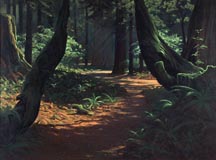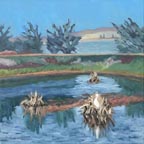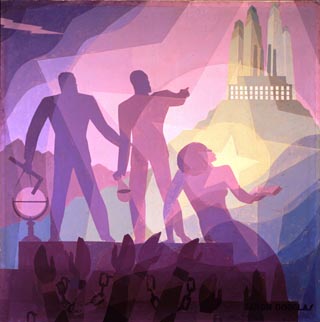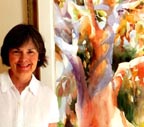|
Bodega Bay Heritage Gallery Monthly |
|
||||||
Now Available (click photo) |
Voicemail and Text: 707-875-2911 | Email: Art@BodegaBayHeritageGallery.com An online gallery serving our clients in Bodega Bay, in your home, or online. Click here for more information |
Now Available (click photo) |
||
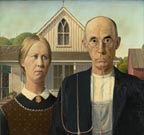 America after the Fall at London's Royal Academy of Arts |
|
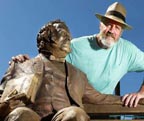 Sonoma's General Vallejo Statue to be unveiled, sculptor Jim Callahan |
||
| America after the Fall at London's Royal Academy of Arts ... by Daniel Rohlfing |
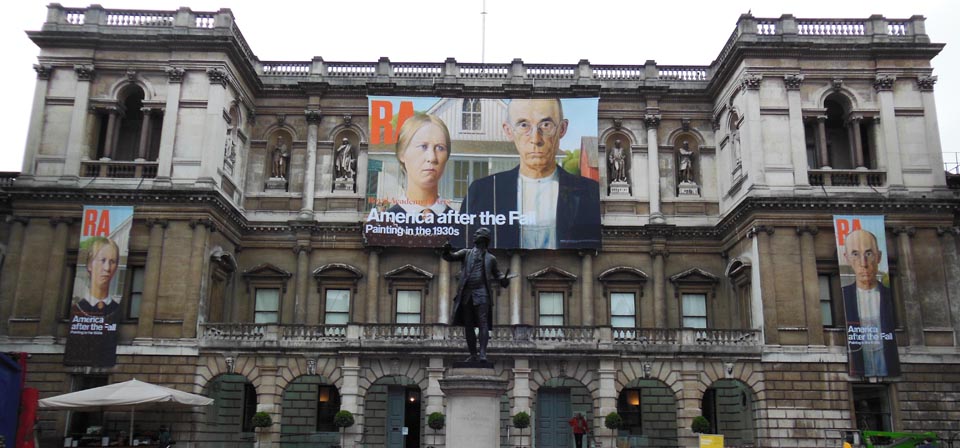 |
|
|
|
|
|
America After the Fall, Paintings of 1930's tells the story of a nation in flux. Artists responded to rapid social change and economic anxiety with some of the 20th century's most powerful art - brought together now in this once-in-a-generation show. |
| The Story of Agricultural America | ||
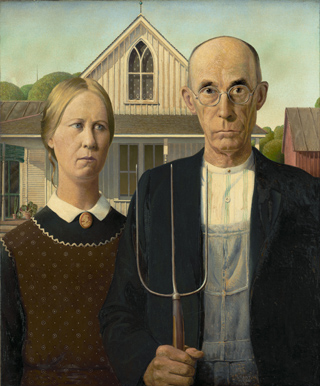 Grant Wood (1891-1942), American Gothic, 1930 |
|
|
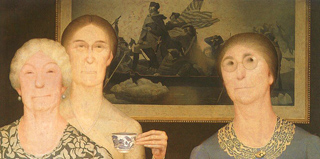 Grant Wood (1891-1942), Daughters of Revolution, 1932 |
|
|
|
Art critic Robert Hughes speaks of Thomas Hart Benton who abandoned modernism and New York's art world to return to the muscular heartland, and of Grant Wood's vision "of the American rural Eden." Hughes goes on to say that this American Eden never existed. |
|
|
|
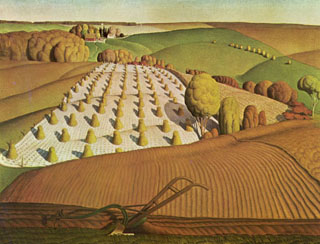 Grant Wood (1891-1942), Fall Plowing, 1931 |
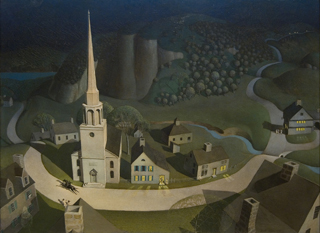 Grant Wood (1891-1942), Midnight Ride of Paul Revere, 1931 |
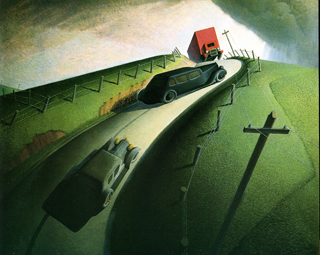 Grant Wood (1891-1942) Death on the Ridge Road, 1935 |
|
||
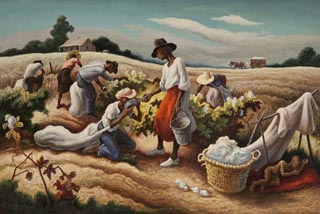 Thomas Hart Benton (1889-1975), Cotton Pickers, 1945 |
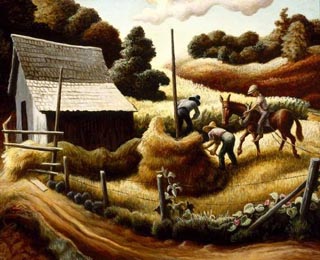 Thomas Hart Benton (1879-1975), Haystack, 1938 |
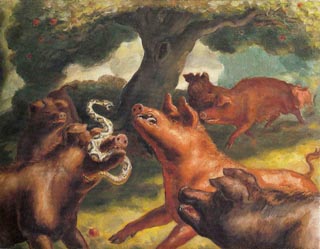 John Steuart Curry (1897-1946), Hogs Killing a Snake, 1930 |
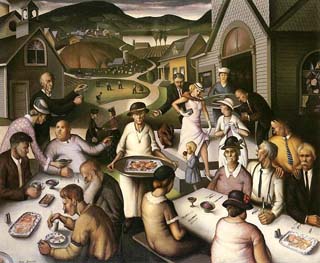 Paul Sample (1896-1974), Church Supper, 1933 |
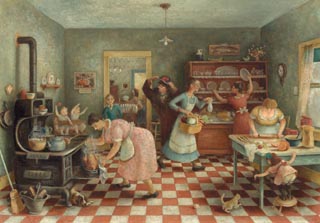 Doris Lee (1905-1983), Thanksgiving, 1935 |
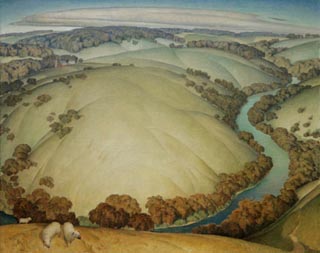 Marvin Cone (1891-1965), River Bend #4, 1938 |
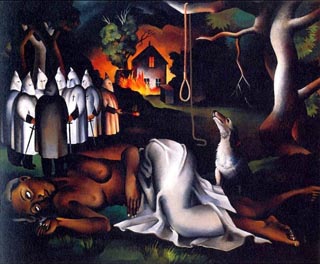 Joe Jones (1909-1963), American Justice, 1933 |
|
|
| The Story of Industrialized and Urbanized America | ||
|
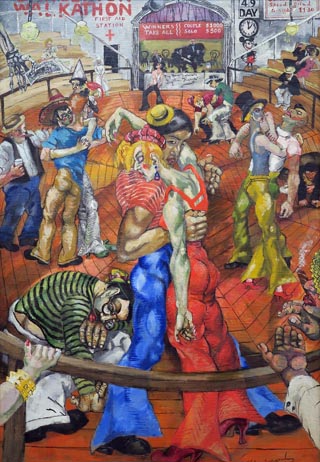 Phillip Evergood, (1901-1973) Dance Marathon, 1934 |
|
|
|
|
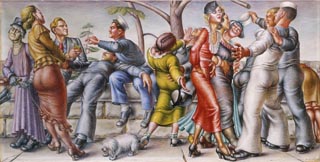 Paul Cadmus, (1904-1999) The Fleet's In, 1934 |
||
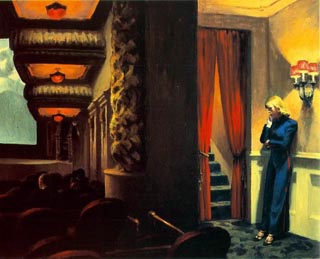 Edward Hopper (1882-1967), New York Movie, 1939 |
|
|
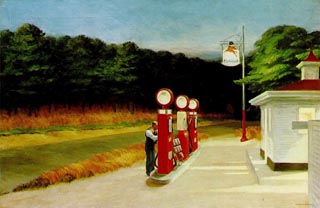 Edward Hopper (1882-1967), Gas, 1940 |
|
|
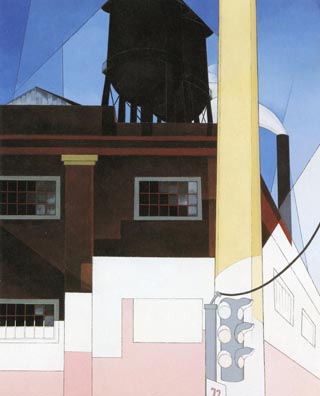 Charles Demuth (1883-1935) , And the Home of the Brave, 1931 |
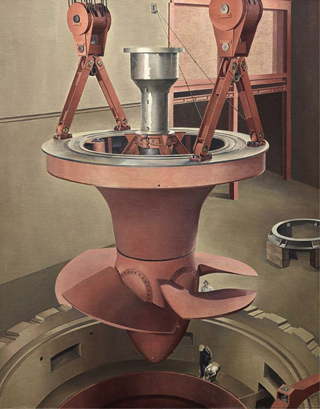 Charles Sheeler (1883-1965), Suspended Power, 1939 |
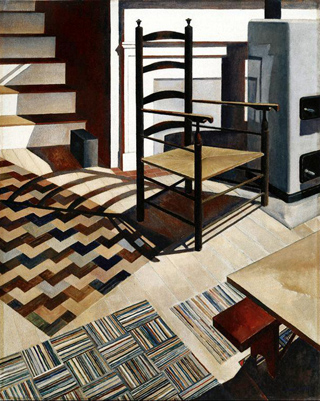 Charles Sheeler (1883_1965), Home Sweet Home, 1951 |
|
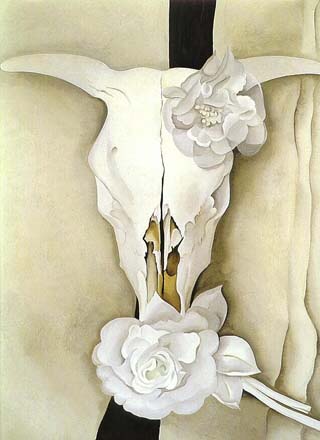 Georgia O'Keeffe (1887-1986), Cow Skull with Calico Rose, 1931 |
|
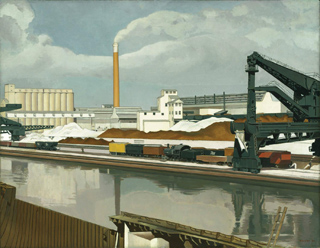 Charles Sheeler ( 1883-1965), American Landscape, 1930 |
|
|
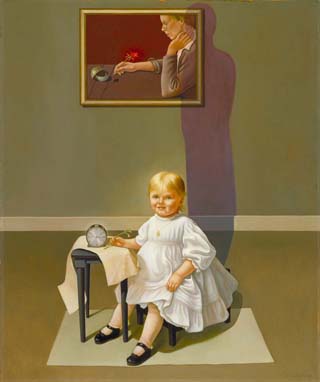 Helen Lundeberg ( 1908-1999), Portrait of the Artist in Time, 1935 |
|
|
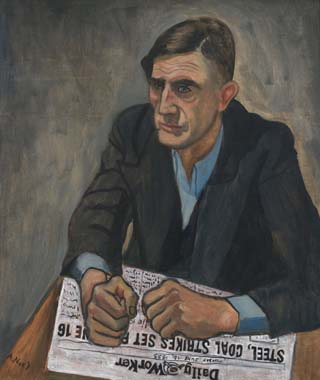 Alice Neel (1900-1984), Pat Whalen, 1935 |
|
|
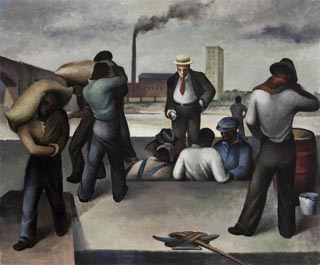 Joe Jones (1909-1963), Roustabouts, 1934 |
|
|
|
||
| Royal Academy of Art's Exhibition Page | Back to the Top | ||
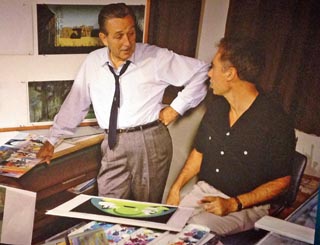 Walt and Eyvind discussing backgrounds for 1958's Sleeping Beauty |
Eyvind Earle at SF's Walt Disney Family Museum through Jan 8, 2018 |
|
|
|
|
|
|
|
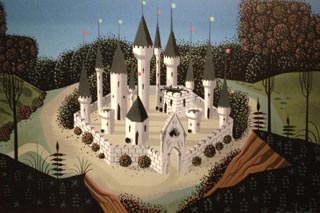 An example of Medieval background, c 1957 |
|
Regarding working at Disney Studios, Eyvind said, "I consider my six or seven years at Disney's the greatest art school in the whole world, because I worked hard and fast with the very, very best men in the industry. |
An LA Channel 7 review of a previous Eyvind Earle exhibition held in Glendale. This video is preceded by a 30 second online ad. |
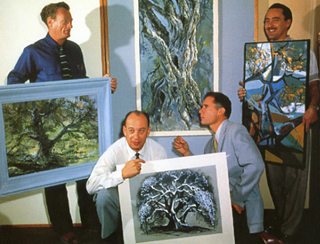 Eyvind participated in Walt Disney's 4 Artists Paint 1 Tree, first broadcast on Disney's TV show in 1958. Also participating were Joshua Meador, Marc Davis, and Walt Peregoy. The film is available on YouTube.com. |
|
|
|
 Eyvind Earle, US Navy Photo Portrait, 1943-45 |
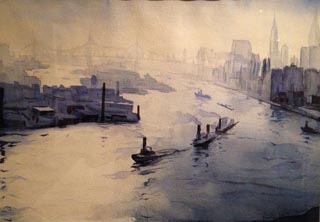 New York, 1939 |
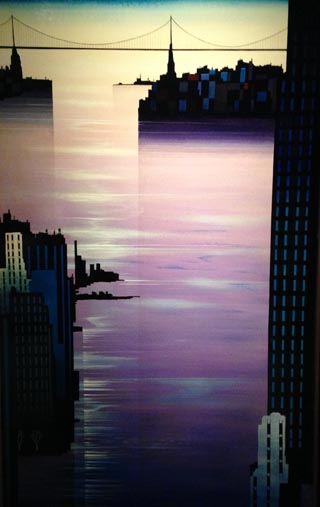 East River, 1975 |
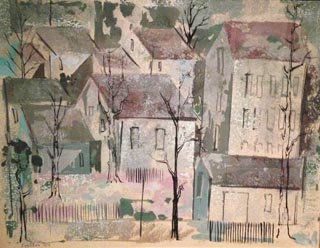 Old Town, 1954 |
||
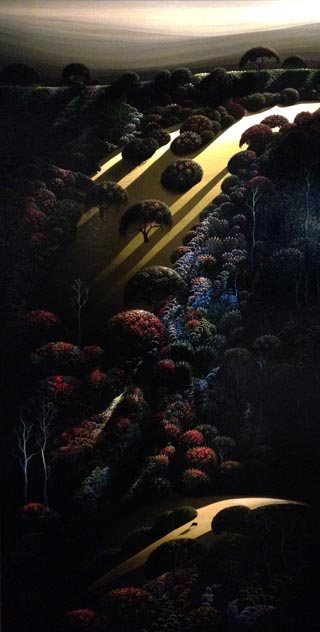 Hillside Magic, 1976 |
|
|
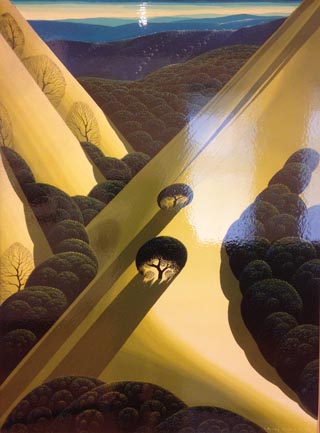 Steep Hillside, 1994 |
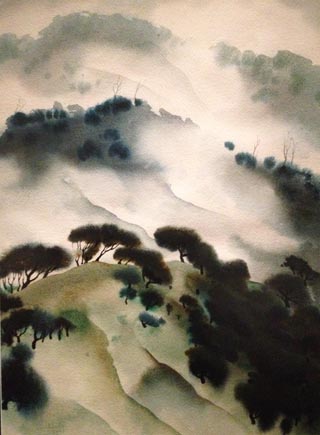 Sierra, 1949 |
|
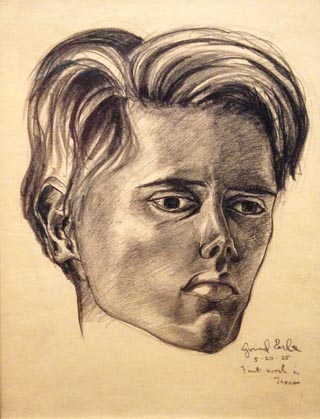 Self Portrait Sketch, 1925 (age 9-10) |
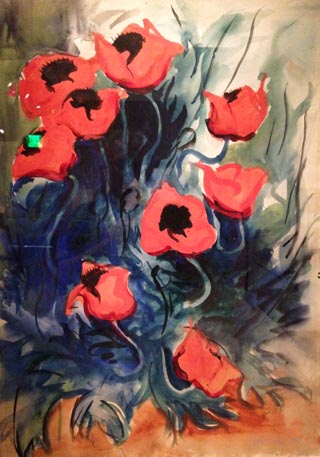 Orange Flowers, 1940 |
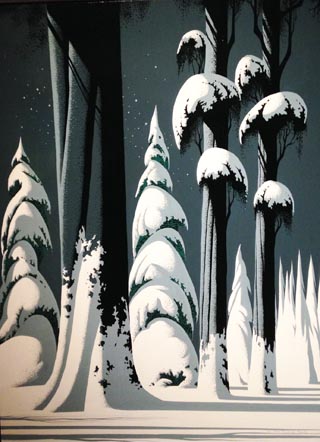 Yosemite, 1994 |
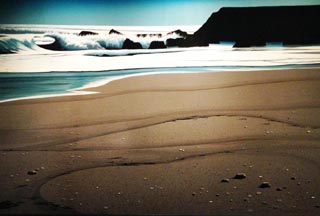 Beach |
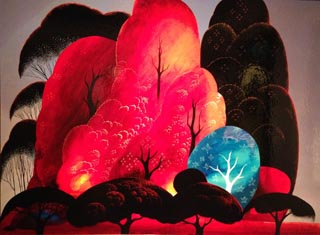 Blazing Glory, 1989 |
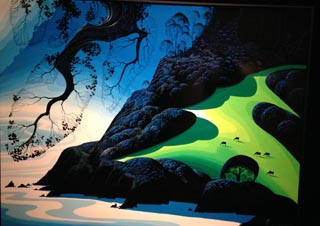 Coastal Paradise, 1995 |
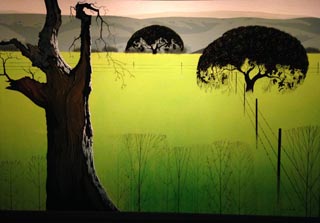 Mustard Field, 1974 |
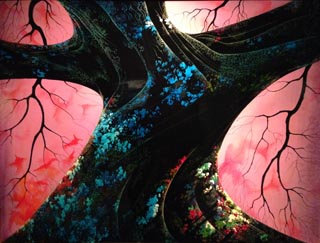 Giant Oak, 1996 |
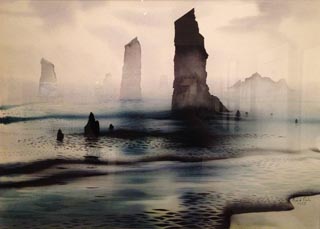 Morro Bay, 1953 |
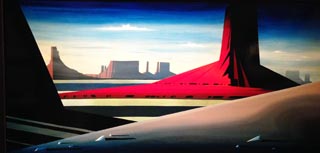 Monument Valley, 1985 |
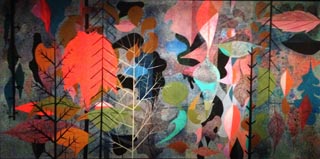 Forest Leaves, 1958 |
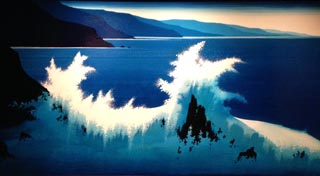 Crashing Wave, 1991 |
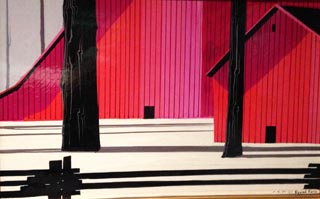 Red Barn and Fence, 1975 |
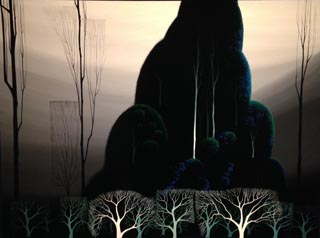 Orchard, 1984 |
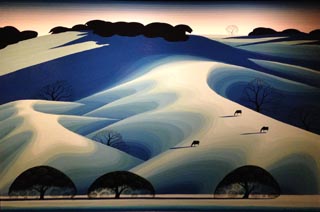 Pastures of Early Spring, 1996 |
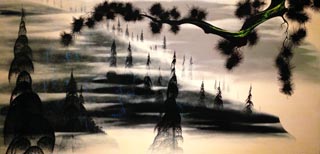 Point Lobos, 1989 |
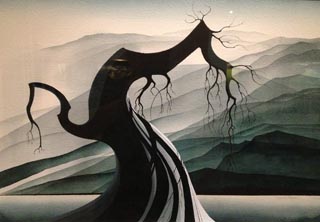 Winter Tree, 1951 |
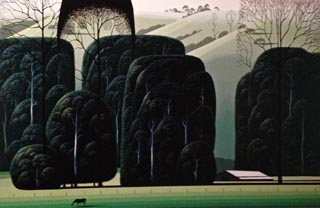 Tall Trees and Barn, 1969 |
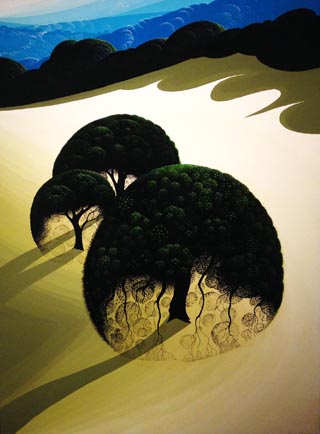 Three Live Oaks, 1983 |
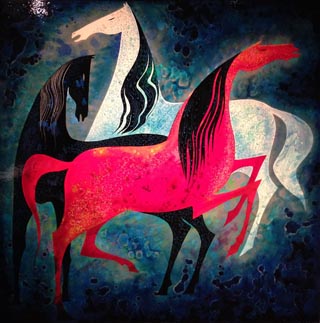 Three Noble Horses, 1993 |
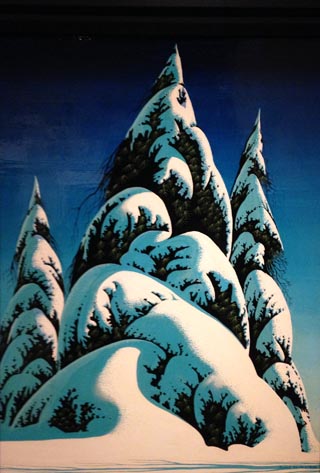 Trees Draped in Winter, 1996 |
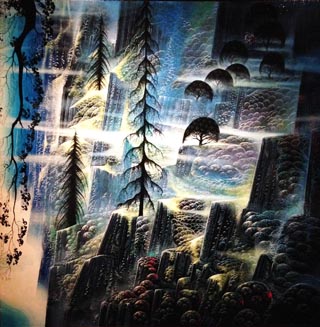 Where Eagles Fly, 1993 |
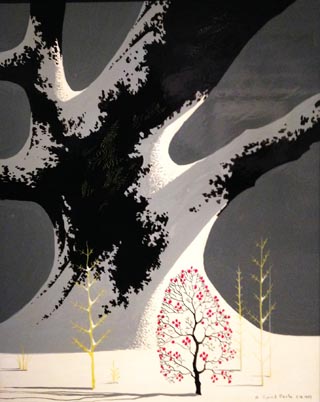 Winter Oak, 1959 |
|
| Images from the Crucifixion sequence of Eyvind Earle's Easter Special, powerfully stylistic to the point it was considered too harsh for public broadcast. | ||
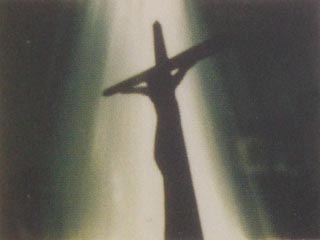 |
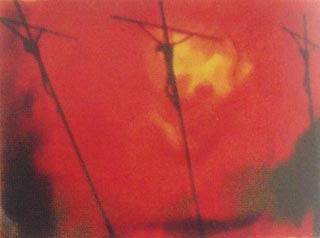 |
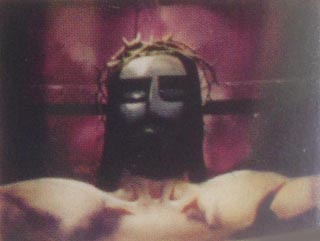 |
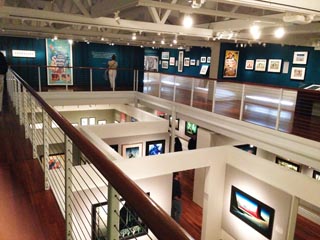 Two Floors of the Eyvind Earle Exhibition, Walt Disney Family Museum, June 2017 |
|
| The Walt Disney Family Museum | Bodega Bay Heritage Gallery's page for Joshua Meador | Back to the Top |
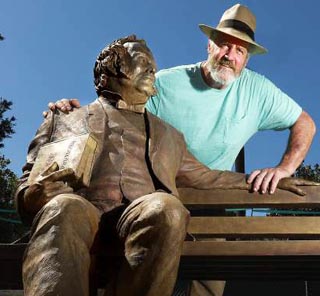 General Vallejo and sculptor Jim Callahan |
Santa Rosa's Press Democrat reports, "General Vallejo gets his own statue in the Sonoma Plaza." |
|
|
|
|
| In July of last year, we reported on Jim Callahan's preparation for this statue. At the time, some felt the proposed pose with the General in a seated position on a park bench was less than dignified. LINK | Back to the Top |
|
| GALLERY NOTES ... | ||
| At the Landmark Gallery in the town of Bodega 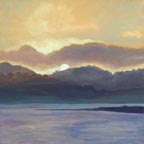 Linda Sorensen's Inverness and Mt. Vision Tomales Bay 12 x 12 |
|
At Corrick's in Santa Rosa " Art Trails Gallery" 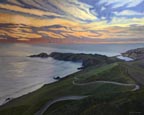 Linda Sorensen's Hawk Hill to Point Bonita 24 x 30 |
 Linda Sorensen's cabin studio on Dutch Bill Creek in Monte Rio |
|
|
|
||
| What's showing in Bodega Bay? | ||
 |
Bodega Bay Heritage Gallery |
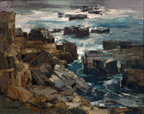 "Composed by the Ocean" Joshua Meador |
 Ren Brown |
The Ren Brown Collection "Beginning a New Year" 1781 Coast Highway One, Bodega Bay, 94923 707-875-2922 | rbc4art@renbrown.com http://www.renbrown.com | Back to the Top |
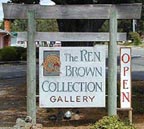 |
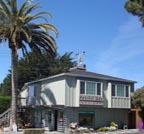 |
Pacific Bay Gallery |
|
Bodega Bay's Jean Warren Watercolors |
||
| What's showing nearby? in Sonoma, Napa & Marin Counties |
||
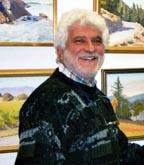 Landmark Gallery's Lorenzo de Santis |
IN BODEGA Bodega Landmark Gallery Collection - renovated and reopened including the paintings of Linda Sorensen 17255 Bodega Highway Bodega, California USA 94922 Phone 707 876 3477 Fri-Mon, 10:30 - 5:30 http://www.artbodega.com | Lorenzo@ArtBodega.com | Back to the Top |
 |
 |
IN SEBASTOPOL, Sebastopol Center for the Arts |
|
 Corrick's Keven Brown |
IN SANTA ROSA Corrick's Art Trails Gallery | http://www.corricks.com/arttrailsgallery |
 |
 Dennis Calabi |
IN SANTA ROSA Calabi Gallery | http://www.calabigallery.com 456 Tenth Street, Santa Rosa, CA 95401 | email: info@calabigallery.com | 707-781-7070 Famed master conservator Dennis Calabi brings his rare knowledge and experience to present a tasteful and eclectic array of primarily 20th century artwork. http://www.calabigallery.com | Back to the Top |
 Easton, Crustacean Dancing Dream, American Alabaster |
 |
IN Santa Rosa The Annex Galleries specializing in 19th, 20th, and 21st century American and European fine prints The Annex Galleries is a member of the International Fine Print Dealers Association (IFPDA). http://www.AnnexGalleries.com | Back to the Top |
|
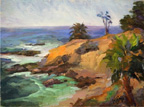 |
IN GRATON Graton Gallery http://www.gratongallery.com Graton Gallery | (707) 829-8912 | artshow@gratongallery.com 9048 Graton Road, Graton CA 95444 | Open Wednesday ~ Saturday 10:30 to 6, Sunday 10:30 to 4 |
|
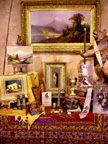 |
IN DUNCANS MILLS Christopher Queen Galleries 3 miles east of Hwy 1 on Hwy 116 on the Russian River "Legacy" celebrating our 27th Annual Early Artists of the Bohemian Club Exhibition and Sale -- through July 9 Champagne Reception, Sun July 16, 1-3 PM http://www.christopherqueengallery.com |707-865-1318| Back to the Top |
|
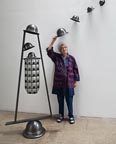 |
IN Healdsburg Hammerfriar Gallery http://www.hammerfriar.com (707) 473-9600 | Jill@hammerfriar.com 132 Mill Street, Healdsburg, CA 95448 | Open Tues - Fri 10 to 6, Sat 10 - 5, Sun 12 - 4 |
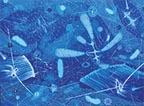 |
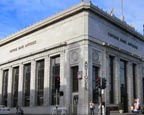 |
IN PETALUMA Vintage Bank Antiques |
|
 |
IN PETALUMA Petaluma Art Center "... to celebrate local artists and their contributions and involve the whole community" |
 |
| Links to current museum exhibits relevant to Early California Art | |||
| The Greater Bay Area | |||
| The Walt Disney Family Museum This museum tells Walt's story from the early days. (on the Parade Grounds) 104 Montgomery Street, The Presidio of San Francisco, CA 94129 Special Exhibition ... "Awaking Beauty, The Art of Eyvind Earle ... through Jan 8, 2018 -- view location on Google Maps -- |
 |
San Francisco de Young Museum The Summer of Love Experience: Art Fashion and Rock and Roll ... through Aug 20 Permanent Collection |
 |
| San Francisco California Historical Society |
 |
San Francisco Legion of Honor -Permanent European and Impressionist Paintings -Degas, Impressionism and the Paris Millinary Trade ... through Sep 24 |
 |
| San Francisco Contemporary Jewish Museum |
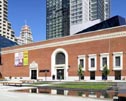 |
Oakland Oakland Museum of California -- ongoing Gallery of California Art -showcasing over 800 works from the OMCA's collection |
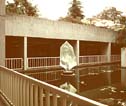 |
San Francisco |
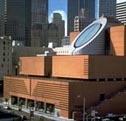 |
 |
|
| Santa Rosa Charles M. Schultz Museum |
 |
 |
|
| Sonoma Mission San Francisco de Solano Museum featuring the famed watercolor paintings of the California Missions by Christian Jorgensen |
 |
Sonoma Sonoma Valley Museum of Art 551 Broadway, Sonoma CA 954 (707) 939-7862 |
 |
| Ukiah Grace Hudson Museum "Callifornia's Wild Edge"Jul 8 - Oct 8 http://www.gracehudsonmuseum.org |
 |
Bolinas |
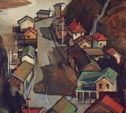 |
| Walnut Creek The Bedford Gallery, Lesher Center for the Arts |
 |
San Jose San Jose Museum of Art approximately 2,000 20th & 21st century artworks including paintings, sculpture, new media, photography, drawings, prints, and artist books. |
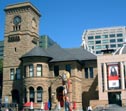 |
| Monterey Monterey Museum of Art Ongoing exhibitions ... Museums Permanent Collection including William Ritschel and Armin Hansen http://www.montereyart.org |
 |
Palo Alto Cantor Art Center at Stanford University |
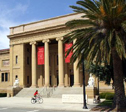 |
Monterey |
 |
Sacramento Crocker Art Museum & their marvelous Permanent Collection |
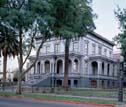 |
| Sacramento Capitol Museum Governor's Portrait Gallery Permanent Exhibits (including one of our galllery's favorite artists, Robert Rishell's portrait of Gov. Ronald Reagan |
 |
Stockton's Treasure! The Haggin Museum! -Largest exhibition of Albert Beirstadt paintings anywhere, plus the works of Joseph Christian Leyendecker, Norman Rockwell's mentor. see our Newsletter article, April 2011 |
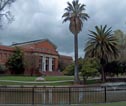 |
| Southern California (and Arizona) | |||
| Los Angeles Los Angeles Museum of Art Art of the Americas, Level 3: Artworks of paintings and sculptures from the colonial period to World War II— a survey of of art and culture & "Levitated Mass" |
 |
Irvine The Irvine Museum Dusk till Dawn ... through Sep 28 The Irvine Museum |
 |
| Santa Barbara The Santa Barbara Museum of Art |
 |
Orange Hilbert Museum, Chapman University The Hilbert Collection focuses on California Scene Painting, including most well known 20th century California artists |
 |
| Pasadena Norton Simon Museum -an Impressive Permanent collection, European impressionist and post impressionist paintings See our newsletter from March 2014 |
 |
Pasadena Pasadena Museum of California Art |
 |
| San Diego San Diego Museum of Art Permanent Collection |
 |
San Marino (near Pasadena) |
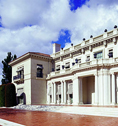 |
| Palm Springs Palm Springs Art Museum Permanent Collection American 19th century Landscape Painting |
 |
Laguna Beach Laguna Museum of Art -California Art and only California Art Permanent collection includes many historic California Artists of the Laguna Beach Art Association |
 |
| Prescott, AZ Phippen Museum |
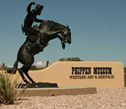 |
Phoenix, AZ Phoenix Art Museum an excellent sampling of Artists of the American West |
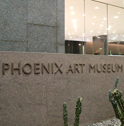 |
| & Beyond | |||
| Honolulu, HI Honolulu Museum (see our Newsletter article from February, 2015) |
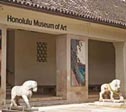 |
Kamuela, HI (Big Island) Issacs Art Center 65-1268 Kawaihae Road Kamuela, HI 96743 (See our Dec '16 article "Hawaii's Paul Gauguin," modernist Madge Tennent, 1889-1972) |
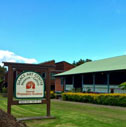 |
| Seattle, WA Seattle Art Museum |
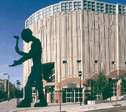 |
Portland, OR Portland Art Museum Permanent Collection: American Art |
 |
| Washington D.C. The Renwick Gallery Permanent ... Grand Salon Paintings from the Smithsonian American Art Museum |
 |
Chicago, IL Art Institute of Chicago Permanent collection: the Impressionists |
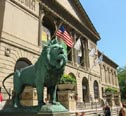 |
| Cedar Rapids, IA The Cedar Rapids Museum of Art Grant Wood: In Focus is an ongoing permanent collection exhibition. |
 |
Bentonville, AR |
 |
| Washington D.C. The National Gallery Permanent collection American Paintings |
 |
Philadelphia , PA The Philadelphia Museum of Art |
 |
| Philadelphia , PA Barnes Foundation, Philadelphia Campus |
 |
Brooklyn, NY The Brooklyn Museum American Art Permanent Collection |
 |
| New York , NY The Whitney Museum of American Art The largest selection of works by Edward Hopper |
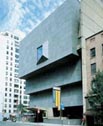 |
Detroit, MI Detroit Institute of Arts American Art Permanent Collection |
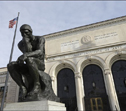 |
| Ottawa, Ontario National Gallery of Canada |
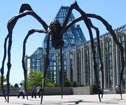 |
||
| Serving our Clients several different ways ... in Bodega Bay, in your home, or on-line. Voicemail and Text: 707-875-2911 | Email: Art@BodegaBayHeritageGallery.com |
|
|
|
|
|
|
|
|
|
|

